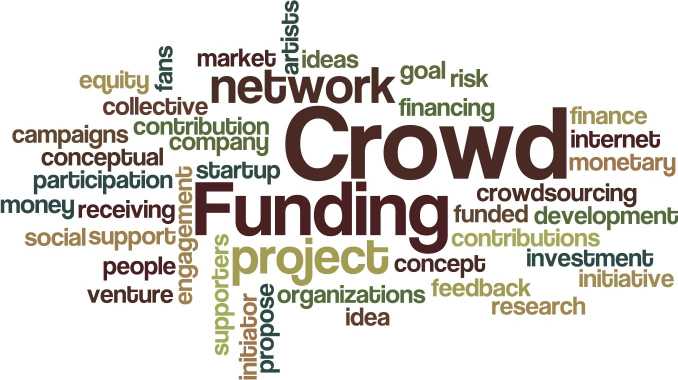Generally speaking, crowdfunding is divided into creative campaigns, reward-based campaigns, and equity campaigns. In creative campaigns, such as a Michael Moore movie, the backers support the message or the “art” and make donations to help promote the cause.
Creative campaigns have been around forever, however reward-based and equity campaigns are relatively new. In reward-based campaigns, the business provides actual rewards for the contributions made by backers. While in equity campaigns, the founders give away micro equity positions to backers. Before crowdfunding, investments in a business was limited to the founder, friends, family, and accredited investors. Title II and Title III of the JOBS bill changed all that. Under the JOBS bill, founders can solicit strangers to invest in their business and raise money in new ways giving birth to reward-based and equity crowdfunding.
So, why doesn’t every founder use crowdfunding to raise money?. The answer lies in the fact that many campaigns simply fail. To be more specific, 60% of creative/reward-based campaigns and 80% of equity campaigns fail. Why do they fail to meet their funding goals? The reason is that the people running the campaign are using traditional marketing rules and crowdfunding does not respond well to traditional marketing.
Crowdfunding is not traditional fundraising and requires businesses to use a completely different set of marketing concepts. The big difference is that crowdfunding is much more personal and less about business. Investing in a crowdfunding campaign is like participating in a reality show except instead of just watching, the backers are participants. Backers of crowdfunding campaigns are not savvy businessmen who are only driven by numbers. Rather, they are regular hardworking people that are seeking a social connection to something that is lacking in their busy work-filled lives. They desire to be part of something bigger than themselves. Therefore, a successful crowdfunding campaign must be marketed with a more personal perspective than a business one. Backers want to live vicariously through the project they invest in. That’s why it is important to convey your personal journey to them so they can feel more connected and a part of your vision.
Relating your project as a story and making it personal will help make an impact on your potential crowdfunding backers. When it comes to using a platform like Kickstarter or Indiegogo, the typical platform costs are about 5% for commission and a 3% processing fee similar to a credit card transaction fee. To illustrate, a business that raises $10K only nets $9.2K in funding proceeds. It should also be noted that most creative/reward-based campaigns raise less than $10K, however, some equity campaigns have raised millions. Generally speaking, it is better to host multiple campaigns based on program milestones. For instance, you could hold one campaign to raise money to develop a minimally viable product (MVP) and then another campaign to get the product into production, etc.
The actual campaign window where you are accepting money should be about 30-45 days long. They need to be short enough to create a sense of urgency yet long enough to reach your goal amount. While there is a huge amount of work to do before you launch your campaign, it is best to try and schedule the campaign around a major event, such as a conference or an expo. This will help promote your campaign at the event and build need buzz. These campaigns work best if you have a prototype or something concrete to leverage support from the industry people who attend the event.
When it comes to rewards, be sure to spell out the reward time frames. While some rewards, such as a t-shirt, can be shipped close to the end date of the campaign, other rewards, such as the V1.0 version of the product, will take much longer to deliver. When it comes to delivery dates, it is better to under-promise and over-deliver. If, however, you suspect it will take longer to deliver rewards than you quoted, it is best to communicate the news to your backers as soon as possible. Backers tend to invest in several programs. If you start missing deadlines, the community you worked so hard to build will abandon you making it much harder to raise more money in the future.
Is crowdfunding an option for your next raise?












